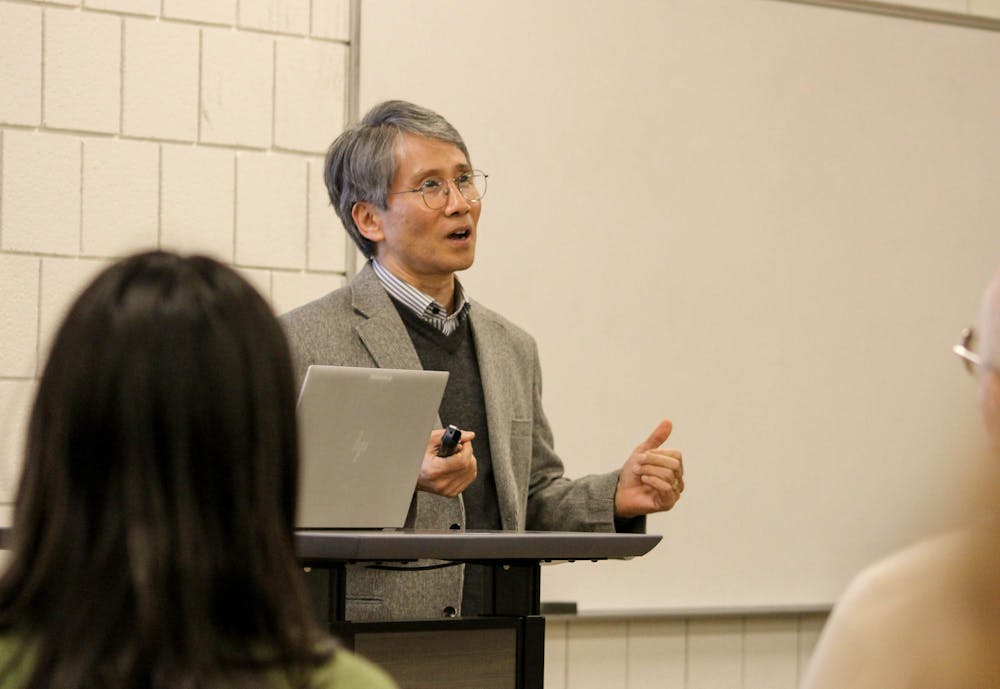Room 142 in Zondervan Library is normally quiet. But on Nov. 14, it hosted a lively group of students and faculty who leaned in to hear one charismatic professor’s story.
Joseph Pak, professor of biblical studies, presented his brand-new book, “What the Bible Says about the Dangers of Self-Deception: An Exegetical Approach.”
Published in Oct. 2024, the book talks about what philosophy, theology and psychology say about self-deception.
During an hour of discussion, questions and laughs that were shared, he shed light on his personal inspirations that led to a completed project in print.
Pak recalled attending church in his teenage years but never truly putting his faith in God until being in college for a year. He said that in the years prior to having a true relationship with God, he considered himself “saved.”
After becoming a Christian, Pak began to have conversations with others who had a similar “nominal Christian” experience for several years before they repented.
During the summer, Pak embarked on a 50-day journey with his wife, out west. He visited a slew of destinations with breathtaking scenery, from the Black Hills of South Dakota to Redwood National Park in Northern California.
Pak said that he has been interested in the topic of self-deception for over 20 years, as it was included in his PhD dissertation at Dallas Theological Seminary. He had also sent book proposals to publishers to start the process in recent years.
It was during his time on sabbatical this summer that Pak discovered even greater meaning in the research he had already done and penned the words that would end up amounting to six chapters.
Pak explored different examples of people becoming deceived as they leaned into their own personal truth—from Adam and Eve’s refusal to listen to God’s first commands to Paul’s blind rage when persecuting the church.
When people begin to suppress the truth—they are rejecting what God has provided for them, and that will start the process of self-deception, Pak said. God will eventually hand that person over to deception.
“God does give general revelation, so to maintain deception, you have to choose it,” he said.
As Pak researched the topic of self-deception, he found that it has been a conversation between many philosophers and theologians alike, from Augustine to Jonathan Edwards. His goal was to apply the insights gained from studying Bible passages that mentioned deception to provide a grounded approach for the book.
Pak delved into the topics using layman's terms, as he said that his target audience was not meant for scholars so much as for the average believer.
Craig Long, an assistant professor of biblical studies, said that he became interested in the aspect of pastoral concern for people who have been deceived that highlighted Pak’s writing.
“I found the idea of self-deception being a Biblical category fascination,” he said.
As the evening discussion concluded, Pak gave away three copies of his book and thanked those who had come. He added that the book is now available to buy online.





